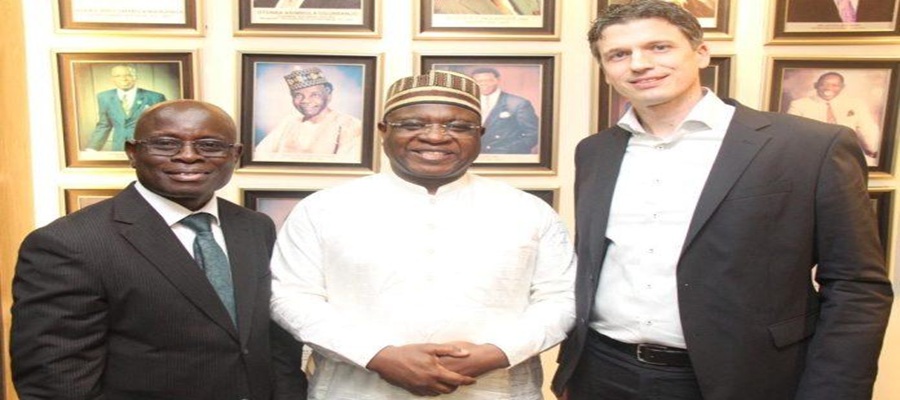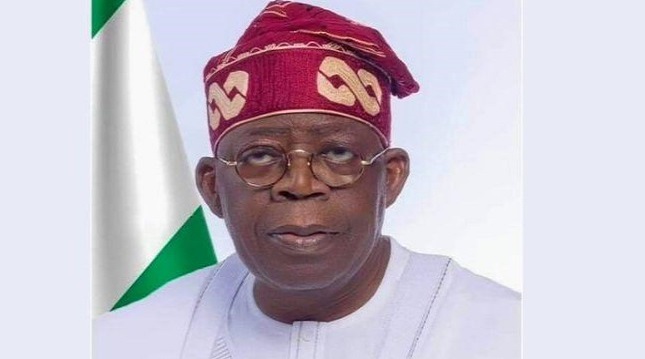News
LAGS Partners Konga to Host 1st Micro Small & Medium Enterprises

The Lagos State Government has partnered with Nigeria' s largest online mall Konga.com to host the first ever Micro Small and Medium Enterprises (MSMEs) fair in Lagos for indigenous and local manufacturers and producers.
This six day fair aimed at promoting ‘made in Nigeria’ products by MSMEs commenced on the 2nd of May and will hold till the 8th of May 2016 at the Adeyemo-Bero Auditorium, Alausa Ikeja, Lagos.
Speaking at the official opening of the fair, the Governor of Lagos State Akinwunmi Ambode, who was represented by the Deputy Governor of the State, Mrs. Oluranti Adebule, while acknowledging the importance of MSMEs to the Nigerian economy noted that with over three million micro enterprises and over 11,000 SMEs, Lagos accounted for the largest concentration of micro and small-scale enterprises in Nigeria.
He further added that in order to tackle the challenges of access to funding by small businesses, the state recently disbursed N6.25bn out of the N25bn employment trust fund established by it.
Prince Rotimi Ogunleye, Lagos State Commissioner for Commerce, Industry and Cooperatives, throwing more light on the vision for Lagos State MSMEs stated five key objectives of the Lagos State Council on MSMEs “Enabling a regulatory environment that supports MSMEs; fostering MSME growth and profitability by promoting clusters; facilitating business support services and creating demand for MSMEs’ products and services; improving access to financial support for MSMEs; raising broad-based awareness and appreciation for entrepreneurship.”
Shola Adekoya, CEO of Konga.com while expressing Konga’s reason for aligning with the Lagos State government in growing and promoting MSMEs in Lagos stated that this was indeed a laudable partnership as is in line with Konga’s mission to be the engine of trade and commerce in Africa by empowering indigenous MSME’s to reach a much wider market across the nation through its seller platform on Konga.com.
Ogunleye concluded by stating that aside listing exhibitors on Konga platform for market access and global visibility, this fair would also foster quality comparison and innovative improvements among participating exhibitors for local and international competitiveness.
News
NGX Unveils Net-Zero Plan for Greener Capital Market

Nigerian Exchange Limited (NGX) has launched the NGX Net-Zero Programme to guide listed companies toward clear carbon reduction pathways and enhanced climate disclosures aligned with global investor standards.

NGX
The high-level launch engaged chief executives of quoted firms alongside development partners including German Investment Corporation KfW, DEG, and African Foresight Group (AFG), NGX’s implementation partner. Issuers and investors discussed financing decarbonisation, sustainability practices, and attracting climate-aligned capital.
NGX Group Chairman Dr Umaru Kwairanga described the initiative as concrete climate action, commending partners for two years of groundwork. “Today marks leadership and decisive action. Climate change has become a core business imperative, with capital markets mobilising capital and setting standards,” Kwairanga said.
He positioned NGX Net-Zero to support emissions measurement, disclosure, capacity building, and sustainable finance access, urging CEOs to embrace it strategically rather than as compliance. Kwairanga reaffirmed NGX’s goal to make Nigeria’s capital market Africa’s green finance hub.
Group CEO Temi Popoola called climate action a business imperative, noting sustainability-embedded firms attract capital, manage risks, and stay competitive. DEG Management Board Member Monika Beck highlighted partnerships scaling impactful, commercially viable climate solutions.
The event closed with a ceremonial gong marking the programme launch and send-off for outgoing DEG Regional Director Bernd Telemann.
News
Nigeria Off EU High-Risk Money Laundering List in Major Financial Win

Nigerian Financial Intelligence Unit (NFIU) has hailed Nigeria’s removal from the European Union’s list of high-risk third countries for Anti-Money Laundering and Countering the Financing of Terrorism (AML/CFT) as a landmark achievement endorsing the nation’s reform efforts.

Nigerian Financial Intelligence Unit (NFIU)
NFIU CEO Hafsat Abubakar Bakari said the delisting, contained in European Commission Delegated Regulation (EU) C (2025) 8460 adopted December 4, 2025 and effective January 29, 2026, affirms sustained AML/CFT and Counter Proliferation Financing (CPF) reforms.
The move follows Nigeria’s exit from the FATF Jurisdictions under Increased Monitoring after addressing strategic deficiencies, alongside Burkina Faso, Mali, Mozambique, South Africa and Tanzania.
Bakari noted the European Commission recognised Nigeria’s strengthened AML/CFT effectiveness, closed technical gaps, and fulfilled FATF Action Plan commitments leading to grey list removal in June and October 2025.
The delisting eliminates enhanced due diligence requirements for EU financial transactions, easing compliance, boosting cross-border flows, and enhancing Nigeria’s appeal for European trade, investment and partnerships.
The NFIU attributed success to President Bola Ahmed Tinubu’s political will and collaboration among National Assembly, law enforcement, regulators, judiciary, private sector and development partners.
The agency reaffirmed commitment to ongoing FATF, GIABA, EU engagement and domestic framework resilience to maintain international confidence in Nigeria’s financial system.
News
FG Directs Banks, Fintechs to Remit VAT on Service Fees

The Federal Government has directed all banks and fintechs to collect and remit 7.5 per cent value-added tax on certain electronic banking services, effective Monday, January 19, 2026, according to an email notice issued by payment platforms.

The VAT will apply to electronic banking charges, including mobile money transfers, USSD transaction fees, and card issuance fees, according to an email notice on Wednesday shared with customers by Moniepoint.
For example, if a bank charges N100 to make a transfer, the 7.5 per cent VAT will be applied to that service fee, not the money being sent.
“From Monday, January 19, 2026, we are required to collect a 7.5 per cent VAT, to be remitted to the Nigerian Revenue Service (formerly known as the Federal Inland Revenue Service).
“VAT will apply to certain banking services that include electronic banking charges such as mobile banking fees (transfers), USSD transaction fees, and card issuance fees,” the email read.
Other operators are expected to issue similar notices to their customers in the coming days. Services that will remain exempt include interest earned on deposits and savings, meaning customers will not pay tax on the returns from their accounts.
The NRS, formerly known as the Federal Inland Revenue Service, has set the deadline to ensure that all commercial banks, microfinance banks, and electronic money operators comply with the collection and remittance requirement.
Moniepoint stressed that this is not a price increase but a statutory obligation. “Moniepoint is required to collect and remit VAT to the Nigerian Revenue Service,” the company said in a statement.
The move is part of the government’s broader efforts to standardise VAT collection on digital financial services and expand revenue generation amid Nigeria’s growing digital economy. VAT on banking transactions is not entirely new; the NRS is now enforcing uniform collection rules across all platforms, ensuring compliance across the sector.
Customers have been assured that the new tax will be clearly itemised, with the VAT shown separately on transaction statements and reports.
In December, several commercial banks informed customers that the N50 stamp duty would be deducted on electronic transfers of N10,000 and above, following the commencement of provisions of the new Tax Act.
The charge, previously known as the EMTL, has now been formally reclassified as stamp duty and will be applied as a one-off fee on qualifying electronic transfers.

 E-Financial2 days ago
E-Financial2 days agoAngst as FG Demands 7.5 Percent VAT on Mobile Bank Transfers, USSD

 News2 days ago
News2 days agoMoniepoint Launches Second Cohort of DreamDevs Initiative to Double Down on Africa’s Tech Talent Pipeline

 E-Financial2 days ago
E-Financial2 days agoNGX lists 3.156bn UBA shares, boosting capital to N513Bn

 E-Financial2 days ago
E-Financial2 days agoThe Missing Pieces in Nigeria’s Banking Recapitalisation

 Telecom2 days ago
Telecom2 days agoGlo Unveils Immersive Gaming Experience, Travel Saga

 E-Business2 days ago
E-Business2 days agoHalf of Global Companies Build SOCs to Enhance Cybersecurity, with a Focus on Human Expertise

 General News2 days ago
General News2 days agoNITDA DG Reaffirms Nigeria–U.S. Partnership on Data Privacy, AI and Cybersecurity

 General News2 days ago
General News2 days agoParadigm Initiative Condemns the Internet Shutdown and Media Restrictions in Uganda Ahead of the 2026 General Election















